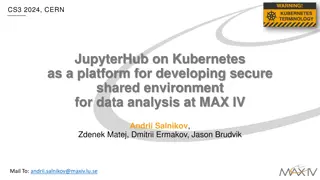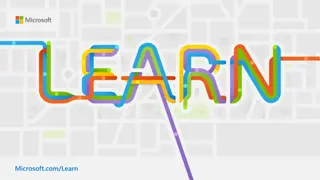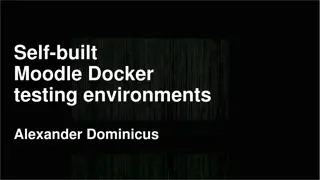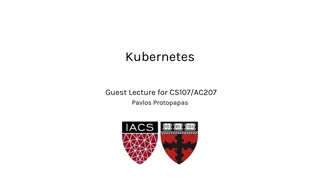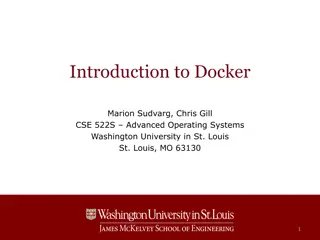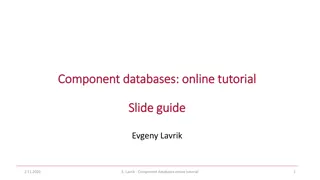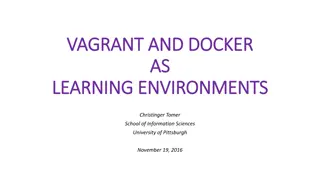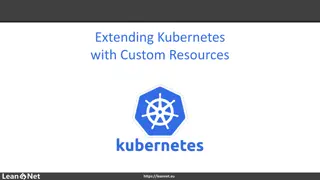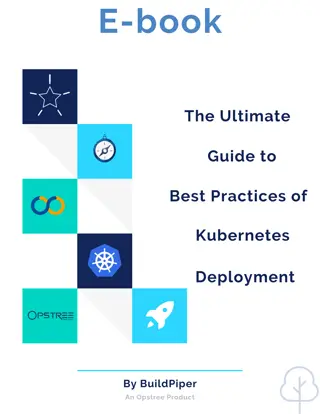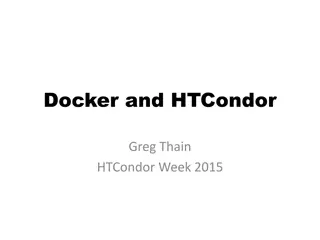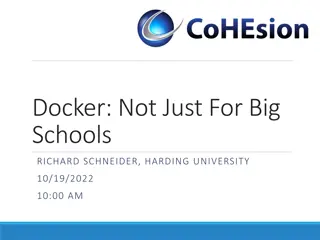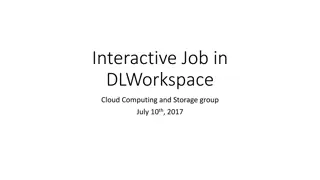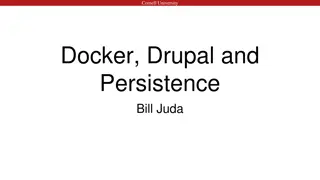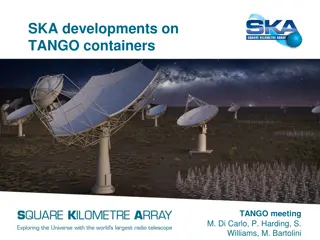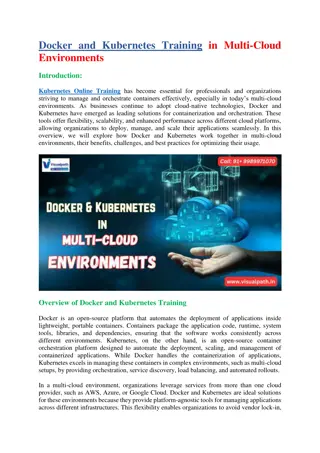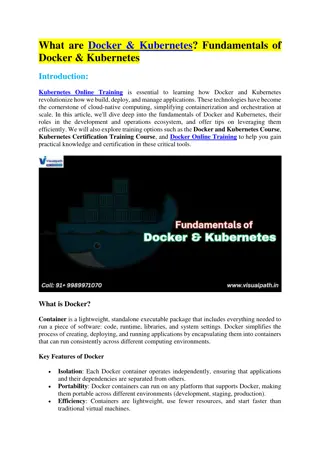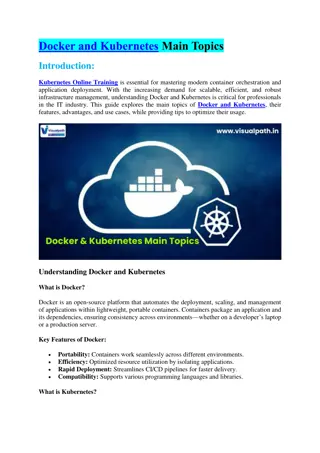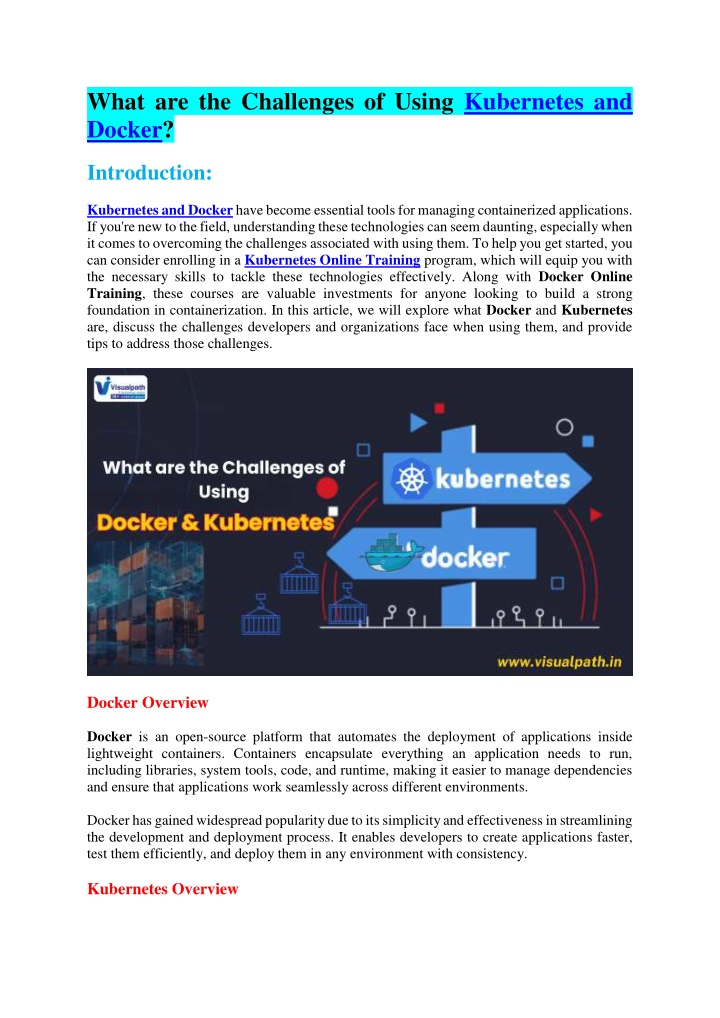
Kubernetes Online Training - Docker Kubernetes Online Course
Visualpath provides premier Docker and Kubernetes Training, delivered by industry experts to ensure hands-on learning. Our courses are accessible worldwide, catering to students in the USA, UK, Canada, Dubai, and Australia. For more information, call
Uploaded on | 1 Views
Download Presentation

Please find below an Image/Link to download the presentation.
The content on the website is provided AS IS for your information and personal use only. It may not be sold, licensed, or shared on other websites without obtaining consent from the author. If you encounter any issues during the download, it is possible that the publisher has removed the file from their server.
You are allowed to download the files provided on this website for personal or commercial use, subject to the condition that they are used lawfully. All files are the property of their respective owners.
The content on the website is provided AS IS for your information and personal use only. It may not be sold, licensed, or shared on other websites without obtaining consent from the author.
E N D
Presentation Transcript
What are the Challenges of Using Kubernetes and Docker? Introduction: Kubernetes and Docker have become essential tools for managing containerized applications. If you're new to the field, understanding these technologies can seem daunting, especially when it comes to overcoming the challenges associated with using them. To help you get started, you can consider enrolling in a Kubernetes Online Training program, which will equip you with the necessary skills to tackle these technologies effectively. Along with Docker Online Training, these courses are valuable investments for anyone looking to build a strong foundation in containerization. In this article, we will explore what Docker and Kubernetes are, discuss the challenges developers and organizations face when using them, and provide tips to address those challenges. Docker Overview Docker is an open-source platform that automates the deployment of applications inside lightweight containers. Containers encapsulate everything an application needs to run, including libraries, system tools, code, and runtime, making it easier to manage dependencies and ensure that applications work seamlessly across different environments. Docker has gained widespread popularity due to its simplicity and effectiveness in streamlining the development and deployment process. It enables developers to create applications faster, test them efficiently, and deploy them in any environment with consistency. Kubernetes Overview
Kubernetes, on the other hand, is an open-source container orchestration platform designed to manage containers at scale. Originally developed by Google, Kubernetes helps automate the deployment, scaling, and operation of containerized applications across a cluster of machines. It abstracts the underlying infrastructure to provide a uniform interface for managing containers, ensuring high availability and scalability for applications. If you're aiming to enhance your skills in managing and orchestrating containers using Kubernetes, enrolling in a Kubernetes Certification Training Course can be a strategic move. This training will help you gain hands-on experience in using Kubernetes to manage large-scale applications effectively. Key Benefits of Docker and Kubernetes 1. Consistency Across Environments Docker containers ensure that an application behaves the same across development, staging, and production environments. This consistency significantly reduces the "works on my machine" problem, enabling smoother workflows for development teams. 2. Resource Efficiency Both Docker and Kubernetes improve resource utilization. Docker containers allow multiple applications to run on the same host without conflicts, and Kubernetes optimizes resource allocation across a cluster, scaling applications based on demand. 3. High Scalability With Kubernetes, organizations can scale their applications quickly and efficiently. It automates the scaling process by adjusting the number of container instances based on the traffic and workload. 4. Improved CI/CD Pipelines By using Docker in conjunction with Kubernetes, organizations can implement more robust Continuous Integration and Continuous Deployment (CI/CD) pipelines. Containers allow for faster and more reliable builds, tests, and deployments. Challenges of Using Docker and Kubernetes 1. Steep Learning Curve Both Docker and Kubernetes have a steep learning curve, especially for newcomers. While Docker is relatively simple to understand, Kubernetes is highly complex due to its vast ecosystem, components, and configurations. Organizations need to invest in Kubernetes Online Training or Docker and Kubernetes Course to ensure their teams have the right knowledge and expertise to manage these tools efficiently. 2. Complexity in Kubernetes Management
Managing Kubernetes clusters can be complex due to the numerous components involved, such as pods, nodes, services, and ingress controllers. Understanding how these components interact requires a deep understanding of Kubernetes architecture. It's essential to have skilled engineers who can manage Kubernetes clusters effectively or enrol in a Kubernetes Certification Training Course to bridge the knowledge gap. 3. Networking Challenges Networking in Kubernetes can be challenging, especially when configuring network policies, managing service discovery, or troubleshooting network connectivity issues between pods. Since Kubernetes operates in a distributed environment, understanding how networking works within clusters is critical. 4. Security Concerns Docker containers share the same kernel, which can raise security concerns if not properly managed. Kubernetes adds another layer of complexity, with security challenges around pod security policies, access control, and secret management. To mitigate these risks, organizations need to implement robust security measures and train their teams in security best practices through Docker Online Training and Kubernetes Certification Training Course. 5. Performance Overheads Running Kubernetes can introduce performance overheads compared to running standalone containers. The orchestration layer consumes additional resources, which might be a concern for smaller organizations or resource-constrained environments. Optimizing performance through careful resource allocation is essential. 6. Cluster Configuration and Management Setting up and maintaining Kubernetes clusters can be time-consuming and requires expertise. Cluster configurations must be carefully managed to avoid issues like resource contention, service outages, or inefficient scaling. Investing in Kubernetes Online Training ensures that your team is equipped to handle cluster configuration and management efficiently. Tips for Overcoming Challenges 1. Training and Certification Enrolling in training programs like Docker Online Training or Kubernetes Online Training can help your team get up to speed with the best practices in managing Docker and Kubernetes environments. Kubernetes Certification Training Courses are also essential for professionals who want to gain advanced skills in managing container orchestration at scale. 2. Automate as Much as Possible Using automation tools like Helm (for Kubernetes) can help simplify the management of configurations and deployments. Additionally, CI/CD tools like Jenkins or GitLab CI can automate the build, test, and deployment process, reducing the likelihood of human error.
3. Adopt a Micro Services Architecture Breaking down applications into micro services can reduce complexity, making it easier to manage individual components. Docker and Kubernetes work exceptionally well with micro services architectures, enabling each service to scale independently based on its workload. 4. Use Managed Kubernetes Services If managing your own Kubernetes cluster seems overwhelming, consider using managed services like Azure Kubernetes Service (AKS), Google Kubernetes Engine (GKE), or Amazon Elastic Kubernetes Service (EKS). These services handle the heavy lifting of cluster management, allowing your team to focus on application development. 5. Focus on Security Best Practices Implement strict security policies for your Docker and Kubernetes environments. This includes enabling role-based access control (RBAC), using network policies to isolate workloads, and securely managing secrets and environment variables. 6. Monitor and Optimize Performance Use monitoring tools like Prometheus and Grafana to gain insights into the performance of your Kubernetes clusters. Regularly analyze performance metrics to identify bottlenecks and optimize resource utilization across your infrastructure. Conclusion While Docker and Kubernetes have revolutionized the way applications are developed, deployed, and scaled, they come with their own set of challenges. These challenges include the steep learning curve, complexity in management, networking issues, security concerns, and performance overheads. However, by investing in Kubernetes Online Training, Docker Online Training, and Kubernetes Certification Training Courses, these challenges can be mitigated. Visualpath is the Best Software Online Training Institute in Hyderabad. Avail complete Docker and Kubernetes worldwide. You will get the best course at an affordable cost. Attend Free Demo Call on - +91-9989971070. WhatsApp: https://www.whatsapp.com/catalog/919989971070/ Visit: https://www.visualpath.in/online-docker-and-kubernetes-training.html

